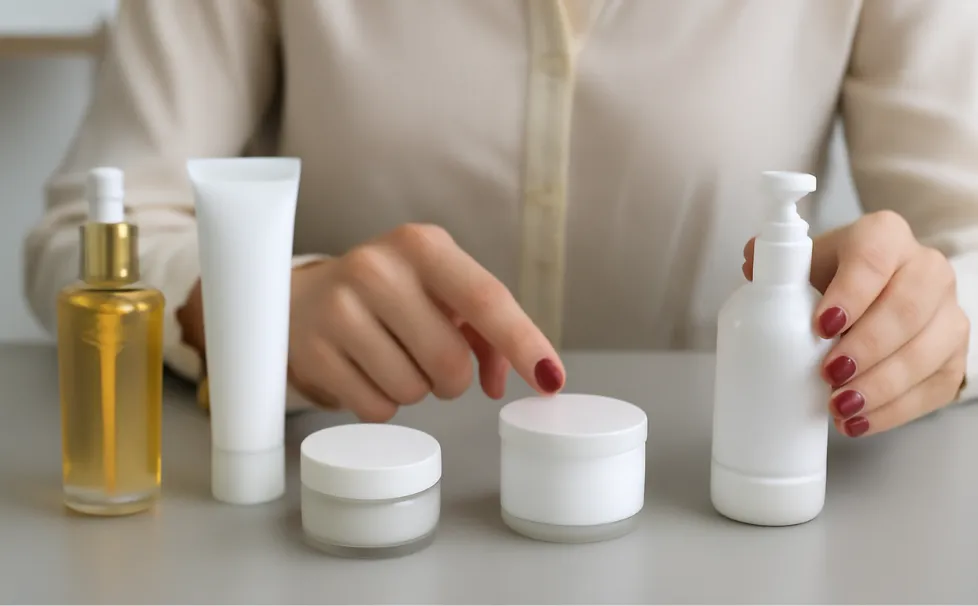
Claims are crucial when marketing cosmetic products: they allow you to differentiate your product from other brands. However, the use of claims in the United States is governed by certain rules that you must follow. Here is a quick summary of everything you need to keep in mind when writing your product claims!
What is a claim?
Claims include all text, images, or symbols used by brands to describe the characteristics of a cosmetic product. They are a key element of marketing, especially product labeling. Claims appear not only on labels but also in advertisements, websites, and social media.
What are claims for?
- Describing the effects of a product
- Helping consumers make an informed choice
- Making the product more attractive compared to competitors
Examples of common claims:
- Helps reduce the appearance of wrinkles
- Hydrates and nourishes the skin
- Cleanses the skin
Cosmetic Claims in the United States in 2025
In the United States, cosmetic product labeling does not require prior approval from the FDA (Food and Drug Administration). However, after being placed on the market, cosmetic products can be inspected, and the claims must be truthful, honest, and supported by scientific evidence.
MoCRA: An Important Update in 2025
The MoCRA (Modernization of Cosmetics Regulation Act), which came into force in 2022, continues to strengthen safety and labeling requirements for cosmetic products. Since 2025, businesses must document and keep evidence of their products' safety and claims throughout the product's lifecycle.
Businesses must ensure that claims, even if they are purely cosmetic, do not cross the line into drug claims. For example, anti-aging claims must avoid mentioning effects on the body's structure or function, such as cell regeneration or collagen production.
Examples of prohibited claims in the United States:
- Indicating that a product treats or prevents a disease (e.g., curing cancer, treating acne).
- Mentioning specific medical conditions (e.g., treating eczema, burns).
- Indicating that the product affects the structure or function of the body (e.g., regenerating cells, stimulating collagen, eliminating cellulite).
How to Distinguish Between Cosmetics and Drugs?
The distinction between a cosmetic product and a drug depends on the intended use of the product. In 2025, the FDA emphasizes the importance of this distinction to avoid lawsuits:
- Cosmetic: Cleanses, beautifies, or alters the appearance (e.g., anti-wrinkle cream).
- Drug: Heals, treats, or prevents a disease (e.g., acne cream, antibiotic cream).
If a product is marketed with claims concerning the treatment or prevention of diseases, it will be considered a drug and will need to obtain FDA approval before being placed on the market.
How to Justify Your Cosmetic Claims?
Although justifying claims is not required by the FDA, it is essential to enhance the brand's credibility and transparency. In 2025, it is crucial to support claims with solid evidence. This may include:
- Consumer perception tests: Collecting data on user perception through questionnaires.
- Scientific publications: Using recent clinical and scientific research to support claims.
- Experimental studies: For example, in vitro, in silico, or ex vivo studies to demonstrate the effectiveness of ingredients and formulations.
The 3 Main Methods to Justify Claims:
- Consumer tests: Collecting reliable data on user perceptions.
- Scientific publications: Relying on recent studies to validate product effectiveness.
- Experimental studies: Conducting laboratory research to prove the formula's effect.
EcoMundo's Role in Claim Regulation
EcoMundo, with its expertise in regulations, can guide you to ensure your products meet the highest standards. We help you:
- Verify that your products are properly classified as cosmetics.
- Formulate claims in full compliance with U.S. legislation.
- Justify your claims with scientific evidence and appropriate testing.
Are You Concerned?
👉 EcoMundo already assists over 500 clients worldwide, don't hesitate to Contact us to review your cosmetic products!
Claims are crucial when marketing cosmetic products: they allow you to differentiate your product from other brands. However, the use of claims in the United States is governed by certain rules that you must follow. Here is a quick summary of everything you need to keep in mind when writing your product claims!
What is a claim?
Claims include all text, images, or symbols used by brands to describe the characteristics of a cosmetic product. They are a key element of marketing, especially product labeling. Claims appear not only on labels but also in advertisements, websites, and social media.
What are claims for?
- Describing the effects of a product
- Helping consumers make an informed choice
- Making the product more attractive compared to competitors
Examples of common claims:
- Helps reduce the appearance of wrinkles
- Hydrates and nourishes the skin
- Cleanses the skin
Cosmetic Claims in the United States in 2025
In the United States, cosmetic product labeling does not require prior approval from the FDA (Food and Drug Administration). However, after being placed on the market, cosmetic products can be inspected, and the claims must be truthful, honest, and supported by scientific evidence.
MoCRA: An Important Update in 2025
The MoCRA (Modernization of Cosmetics Regulation Act), which came into force in 2022, continues to strengthen safety and labeling requirements for cosmetic products. Since 2025, businesses must document and keep evidence of their products' safety and claims throughout the product's lifecycle.
Businesses must ensure that claims, even if they are purely cosmetic, do not cross the line into drug claims. For example, anti-aging claims must avoid mentioning effects on the body's structure or function, such as cell regeneration or collagen production.
Examples of prohibited claims in the United States:
- Indicating that a product treats or prevents a disease (e.g., curing cancer, treating acne).
- Mentioning specific medical conditions (e.g., treating eczema, burns).
- Indicating that the product affects the structure or function of the body (e.g., regenerating cells, stimulating collagen, eliminating cellulite).
How to Distinguish Between Cosmetics and Drugs?
The distinction between a cosmetic product and a drug depends on the intended use of the product. In 2025, the FDA emphasizes the importance of this distinction to avoid lawsuits:
- Cosmetic: Cleanses, beautifies, or alters the appearance (e.g., anti-wrinkle cream).
- Drug: Heals, treats, or prevents a disease (e.g., acne cream, antibiotic cream).
If a product is marketed with claims concerning the treatment or prevention of diseases, it will be considered a drug and will need to obtain FDA approval before being placed on the market.
How to Justify Your Cosmetic Claims?
Although justifying claims is not required by the FDA, it is essential to enhance the brand's credibility and transparency. In 2025, it is crucial to support claims with solid evidence. This may include:
- Consumer perception tests: Collecting data on user perception through questionnaires.
- Scientific publications: Using recent clinical and scientific research to support claims.
- Experimental studies: For example, in vitro, in silico, or ex vivo studies to demonstrate the effectiveness of ingredients and formulations.
The 3 Main Methods to Justify Claims:
- Consumer tests: Collecting reliable data on user perceptions.
- Scientific publications: Relying on recent studies to validate product effectiveness.
- Experimental studies: Conducting laboratory research to prove the formula's effect.
EcoMundo's Role in Claim Regulation
EcoMundo, with its expertise in regulations, can guide you to ensure your products meet the highest standards. We help you:
- Verify that your products are properly classified as cosmetics.
- Formulate claims in full compliance with U.S. legislation.
- Justify your claims with scientific evidence and appropriate testing.
Are You Concerned?
👉 EcoMundo already assists over 500 clients worldwide, don't hesitate to Contact us to review your cosmetic products!




.png)


